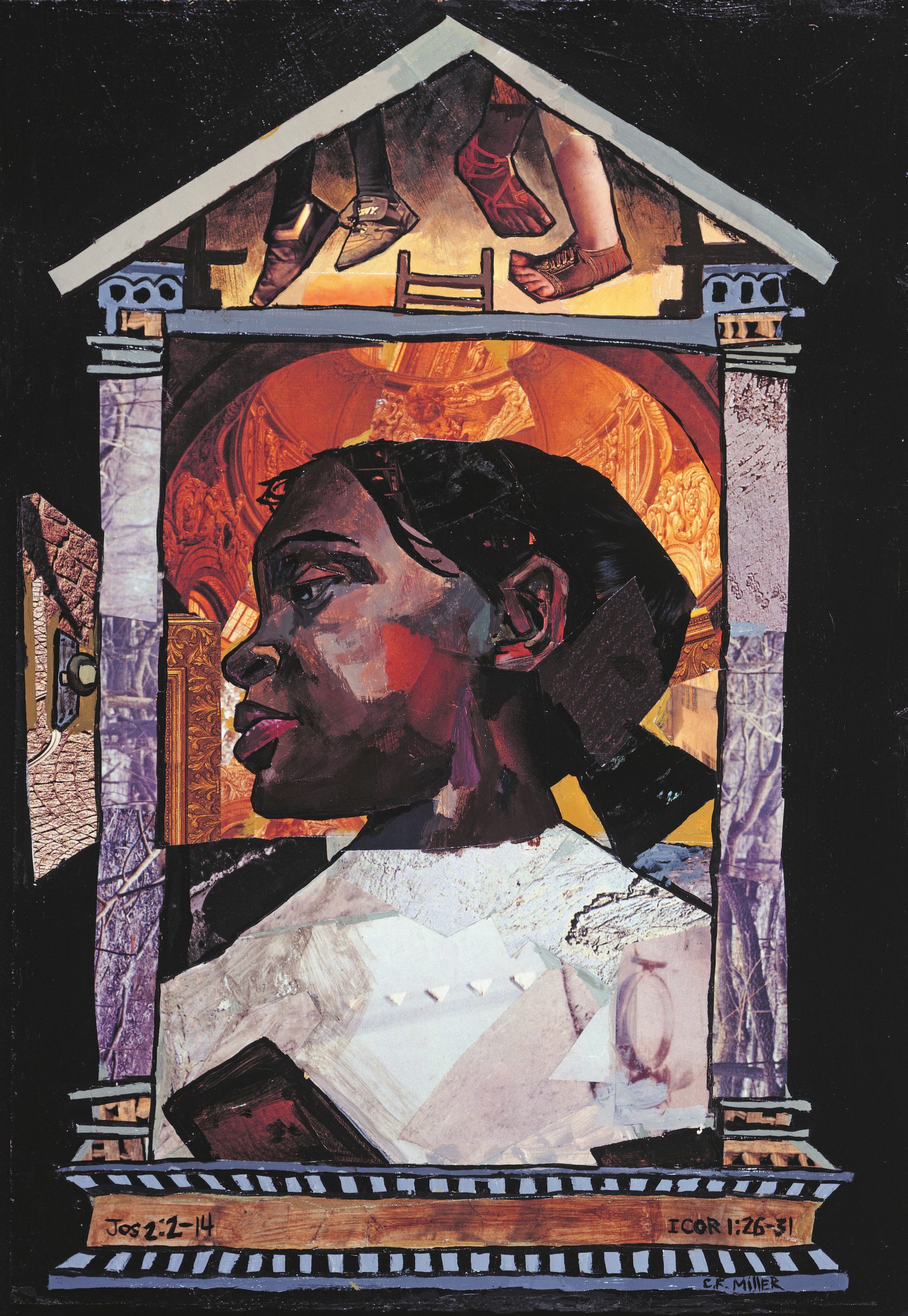What My Grandmothers Taught Me
Lesson Three

Lesson Three: Rahab
Primary Scripture: Joshua 2; 6:22–25
The Gift of the Stranger in Our Midst
Many years ago, I led a series of studies for U.S. Christian Church (Disciples of Christ) women leaders on telling sacred stories. I asked each participant to recount a story of a personal experience that had felt, to them, as though they were standing on holy ground. One woman, I’ll call her Anne, told of a trip her church women had made to visit a mission they’d been supporting in the Philippines. They were taken to meet women with whom this mission was in caring contact and were taken aback to discover that one of these women was a prostitute. The nice, middle class American church women (as Anne described herself and her group) found the fact of this woman’s profession deeply confronting—until they heard her story. Back home in her village her parents were too old and sick to work in the fields and her many brothers and sisters were too young to work. Being uneducated and poverty-stricken she felt her only option was to sell herself. Almost all the money she earned went back to feed, clothe, and educate her siblings, and to keep her parents from starving. Being supported in love and, to some extent, money by the mission allowed her to find self-respect and empowerment in an otherwise barely tolerable situation. As she ended her testimony to these church women, she said, “I am Rahab.”
Anne told this story with tears in her eyes. She explained that meeting this woman was the awakening that changed her life. She realized that the assumptions she had about prostitutes came from the blind acceptance of the lucky deal she had in life, in which she didn’t have to make this kind of decision for herself, let alone for a vulnerable family. For Anne, this story was a gift of the Holy Spirit, a truly sacred story.
It is interesting to note that rabbinic texts have tried to sanitize Rahab by explaining that she would have been an innkeeper, not a prostitute, a woman of commerce but not impure. Nice try, but the biblical text insists on naming her profession when she is introduced and then repeatedly in Joshua 6 when we read about the outcome of her negotiations with the spies: “But Rahab the prostitute, with her family and all who belonged to her, Joshua spared. She has lived in Israel ever since (Josh 6:25).” We miss a deeper meaning if we don’t pay attention to what this story tries to tell us.
My own experience of standing on holy ground is tied to the teaching I have done in Zambia; it has been my own awakening and grounding. Living for a season in Zambia, where many of my neighbors have different lives than my own, sensitizes me once again to my own privilege. When some, like I, have an education, excellent health care, relative luxury, more than basic human rights, and no anxiety about where my next meal will come from; it is unjust that so many in the world lack these things.
I wonder how the story of God’s people would sound if we didn’t have Rahab living in our midst? I suspect that without her challenging voice, we could wrap ourselves inside our comfortable assumptions of righteousness and happily point disapproving fingers at anyone outside our bubble. But Rahab, with her wit and wisdom, brings us a gift beyond price. She shows us that God acts outside our experience as well as within it. God acts outside our “nice” images of righteousness and brings life to and through the least and lowliest. God acts beyond the reach of our imaginations and surprises us with wonder as we stand on holy ground and recognize Rahab as our beloved sister.
Merryl L. Blair
author of the 2021-2022 PW/Horizons Bible Study
******
Purchase a What My Grandmothers Taught Me bible study book and study along with us.
Call 800/533-4371 and order product #HZN21100 or order online
